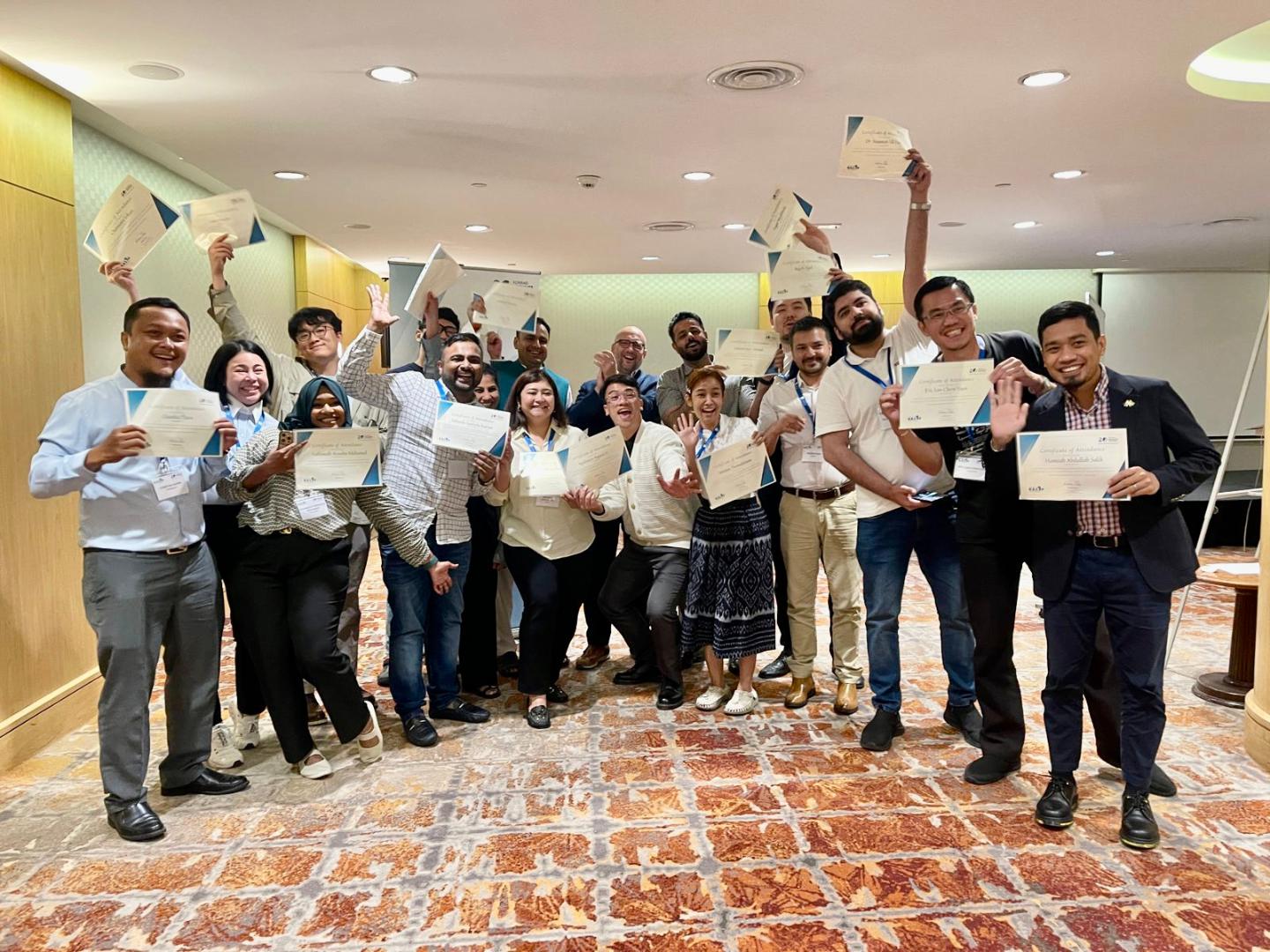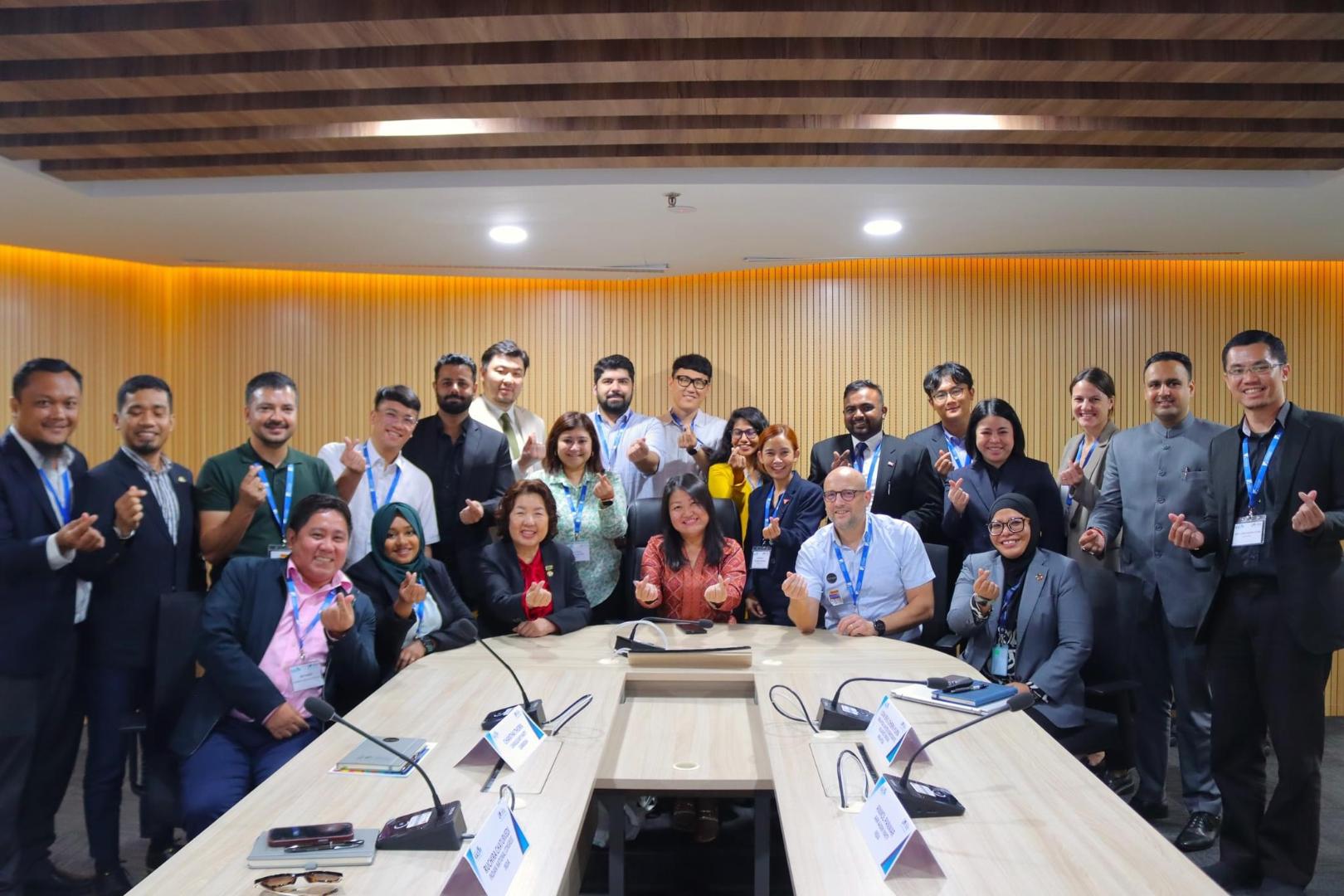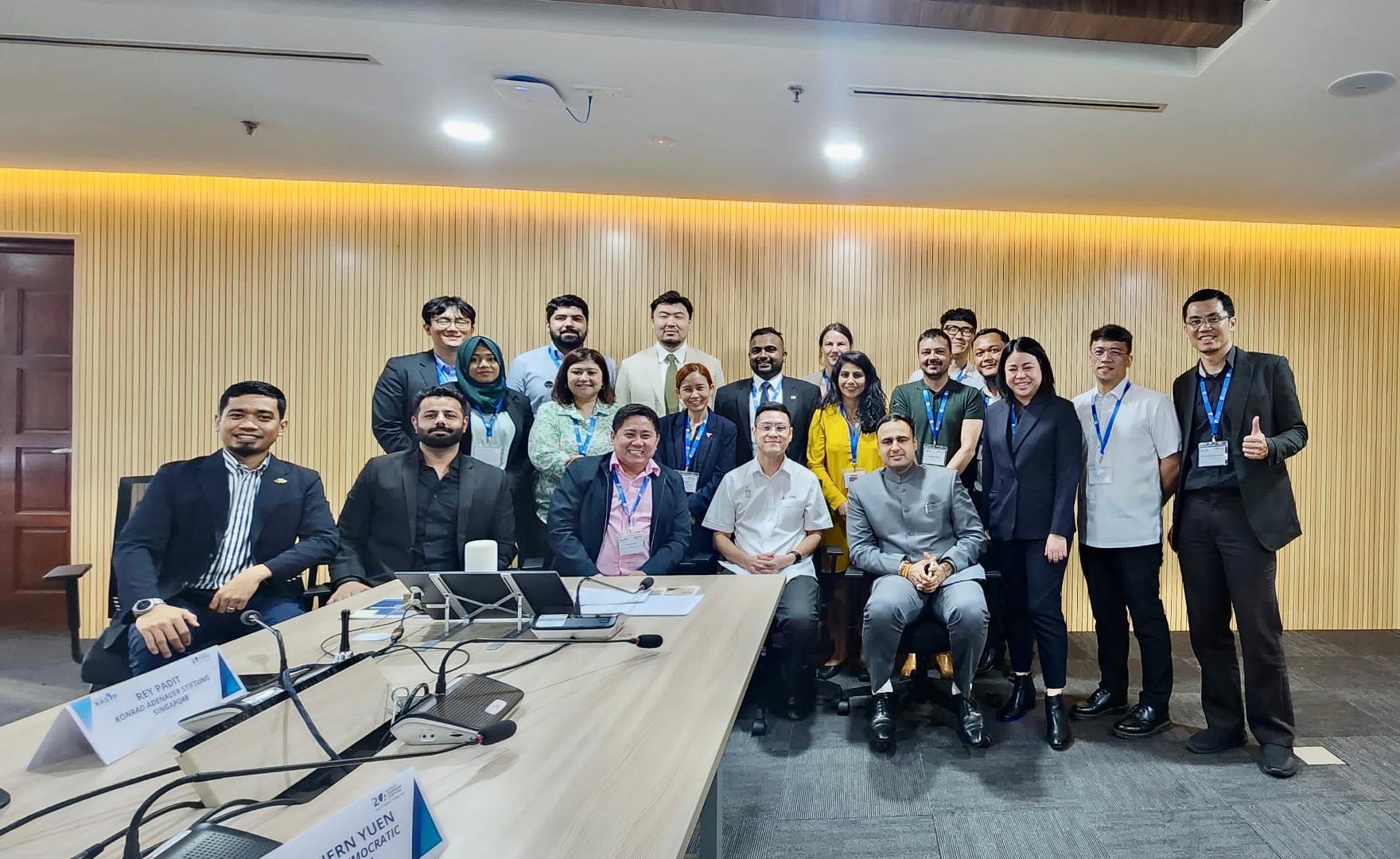The third module of the Konrad Adenauer School for Young Politicians (KASYP) is a about serving. As political leaders, it is assumed that the function they want to perform when elected to office is to effectively serve the public, address societal gaps and in the end alleviate the living standards of their communities. The knowledge content and skills training provided by this module are focused on local economic development and governance, project design, agenda prioritization and co-creation principle.
As democratic leaders, serving the public is not about monopolizing the idea on how to solve social problems, rather it is about sharing the responsibility with stakeholders to allow them to contribute to creating solutions to the challenges they all face. This process of co-creation is the focus of the bridging democratic leadership session where participants are introduced to the arguments why including stakeholders in creating solutions is a more effective approach than having them on the receiving end only. The module also includes training on a specific framework that can translate the principle of co-creation to tangle initiatives or projects.
For the first session, Dr. Marcelino Pandin, ASPAC Adviser of the United Cities and Local Governments Asia-Pacific laid the groundwork for understanding the relationship between local economic development and governance and winning elections. He argued that particular to this region of the world, delivering development is not enough to win elections due to the phenomenon of political chasm. Political chasm could be caused by political culture such as patronage, herding behavior, negative campaigning, incoherent strategies, and money politics. However, he argued that driving local economic development is foundational for political leaders to be on positive books of voters. Participants learned from this session different aspects of governance, capability and financing required for a successful local economic development. They also discussed the various crises affecting local economic development and governance like inflation or cost living, unemployment, fiscal cuts, and technological development.
The session that followed was about equipping the participants with new techniques in co-creating solutions that will have better effectiveness in addressing societal gaps. Mr. Stephen Lin from Haines Centre for Strategic Management introduced to the KASYPers the concept of Systems Thinking Approach to Design Thinking. One key trend in local economic development and governance is employing systems thinking approach to design thinking. This method aims to incorporate the systematic environment of the problem in creating solutions to ensure that problem will be addressed not only from one dimension but in a wholistic manner. While design thinking ensures that solutions are human centred thus optimizing solutions according to human behavior and making compliance easier.
When political leaders co-create solutions with their respective stakeholders, it does not mean that all these solutions will be implemented at the same time. Due to various constraints, prioritisation is key to addressing urgent to long term needs. And in this prioritisation, leaders and stakeholders negotiate which solutions will be considered urgent, how to allocate resources, and how to implement these solutions. On the fourth day, Ms. Shruti Singh, a negotiation consultant provided a training on negotiation so that as leaders, they will be supported on how to navigate and achieve win-win choices for their communities.
For the field day, the participants spent the day understanding local development and governance in Malaysia, particularly in Penang. The day started with a briefing on the work of KAS Malaysia by its Country Representative, Ms. Miriam Fischer and Programme Manager Ms. Simitha Singam. This was followed by a presentation on the impact of federalism in Malaysia’s local economic development and governance by no other than Dato’ Dr. Ooi Kee Beng from Penang Institute. The group then had a lunch with Dato’ Hans Brenner, the German Consul based in Penang. The afternoon was spent on exchanging with the Penang Women Development Council especially with YB Lim Siew Khim, Dato’ Ong Bee Leng and and Ms. Haziqah Nasirah Zol Bahari on the successful story of gender responsive and participatory budgeting in ensuring that the people become co-owners of development. Last but not the least was a dialogue session with YB Zairil Khir Johari on the challenges and opportunities of local economic development and governance experienced by Penang.
The third module ended with the final session on bridging democratic leadership by Dr. Ryan Guinaran. Dr. Ryan facilitated a workshop on creative thinking and innovation thru the scamper method and introduced coaching for performance. Mr. Andreas Klein, Moritz Fink, Kathrin Moser and Rey Padit from the Regional Programme Political Dialogue Asia were the main organizers of this third module of KASYP batch 14.
Topics
Election analysis of the parliamentary elections in Hamburg on 2 March 2025
Bundestag election 2025: France hopes for policy change in Germany
Analysis of the Bundestag election in Germany on 23 February 2025
From Paralysis to Progress? Who will be the new face of the African Union?
Rule of law in South-East Europe: Highlights in 2024






